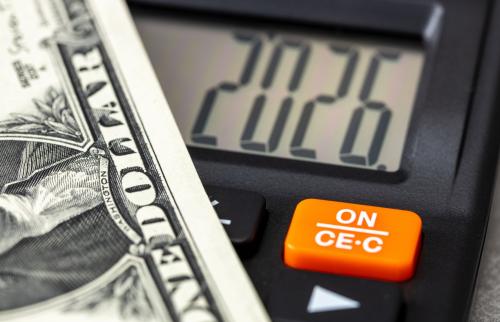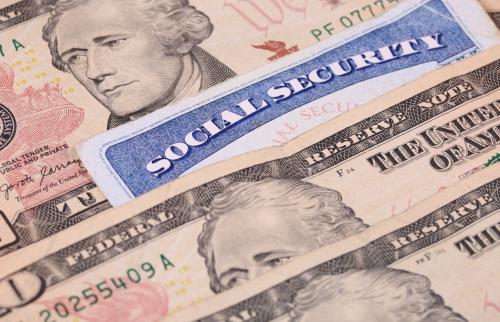Discussions of the lessons learned from the financial crisis generally turn, in part, to the behavior of American households. Experts have been quick to point out that saving was unsustainably low and borrowing was unsustainably high during the boom of the last decade. But, do households agree on this point? And, will they act on it? A new study from researchers at the Federal Reserve Board suggests that, indeed, Americans are inclined to behave more prudently in the post-crisis environment.
In the economy as a whole, saving is certainly up and credit use is down. The personal saving rate has been running between 5 and 6 percent over the past couple of years, well above the lows of around 1 percent seen prior to the crisis. The outstanding level of household debt has been falling steadily since mid-2008. The decline in debt, together with low interest rates, has caused the debt-service ratio—the share of income committed to monthly debt payments—to fall to its lowest level in more than a decade.
Yet, the explanation for these patterns has been far from clear. In the case of outstanding debt, for example, a fair share of the decline appears to reflect borrowers defaulting on their loans. Reduced new borrowing also contributes importantly, but we have seen little evidence on the degree to which this change has been imposed by, say, tight lending conditions, as opposed to conscious choices by households to strengthen their financial positions.
The Fed study, which compared households’ responses from a late-2009 survey to those from a similar survey done two years earlier, suggests that the financial crisis has left Americans with a desire to manage their resources more conservatively. Households tended to report higher desired “precautionary” reserves (savings available for use in hard times). Respondents also showed less willingness to take financial risk, particularly those that had lost a lot of wealth over the crisis period. Around a quarter of families indicated that they would increase spending when they received capital gains on their assets, although roughly 60 percent said that they would trim spending should they suffer capital losses.
Of course, the glass-half-empty view is that greater caution among consumers is damping spending and thereby impeding the economic recovery. This point is correct, and it underscores the need to move forward with steps that will support demand, such as reducing the uncertainty over how federal budget issues will be resolved and committing to a new housing finance system. But, we should not resist a greater inclination toward consumer financial prudence, as putting household balance sheets in a more solid and sustainable position lays essential groundwork for robust longer-term economic growth in this country.
The Brookings Institution is committed to quality, independence, and impact.
We are supported by a diverse array of funders. In line with our values and policies, each Brookings publication represents the sole views of its author(s).



Commentary
Op-edAre Households More Prudent Now?
March 29, 2011